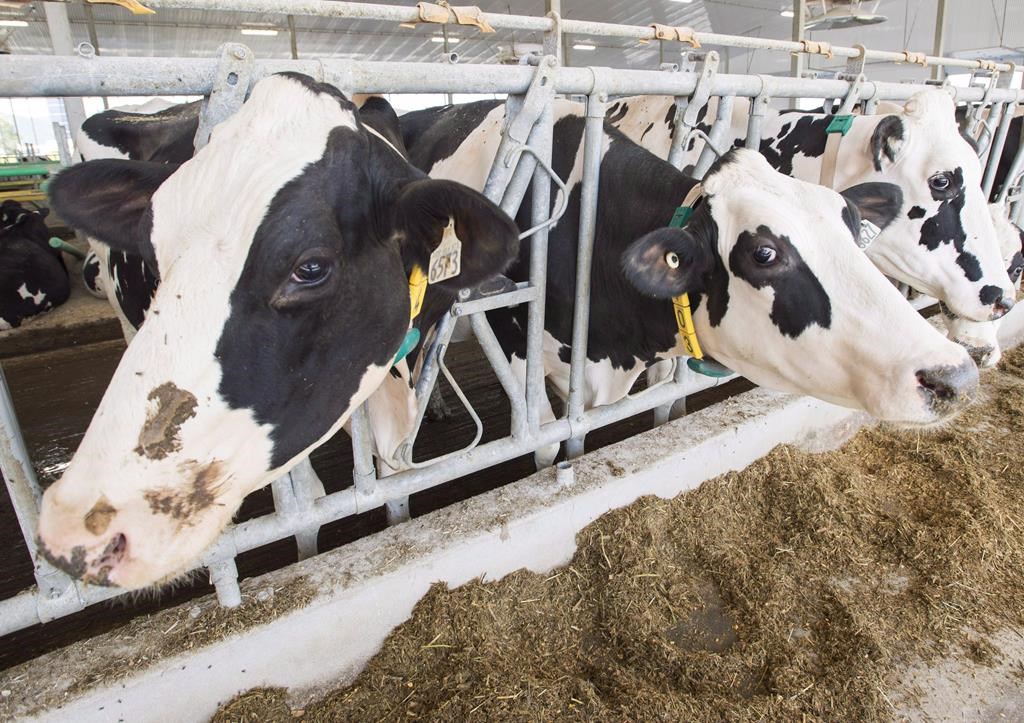Canada clambering for smaller syringes ahead of expected Pfizer vaccine label change

Posted January 27, 2021 3:55 pm.
Canada’s procurement department is scrambling to find smaller syringes for the Pfizer-BioNTech COVID-19 vaccine because Health Canada will likely agree to change the label to say each vial contains six doses instead of five.
N-D-P Leader Jagmeet Singh says he has no problem with the change, so long as the government can show it’s prepared to deal with it.
Pfizer formally requested the change on January 22, and Health Canada’s regulatory team that approved the vaccine for use in early December is now considering the new material.
Medical professionals in the U.S. were first to discover in December that they could get six doses from each vial by using smaller syringes or special ones that trap less vaccine around the needle after injection.
Initially heralded as a way to stretch the precious vaccine even further, the company stepped in to note its contracts are for doses, not vials: If a recipient can get six doses instead of five, then Pfizer and BioNTech can ship fewer vials and still fulfill their contractual obligation.
Pfizer pushed the U.S. and Europe to change the label information on the number of doses per vial and both did in early January.
“The final decision on the label update will reside with Health Canada,” said Pfizer Canada spokeswoman Christina Antoniou.
If Canada agrees to the change, Canada’s 40 million doses of Pfizer-BioNTech’s vaccine will be shipped in about 6.7 million vials.
Antoniou said if Canada does not, then the existing deliveries will continue based on five doses per vial, for a total of eight million vials.
“We will supply to Canada in line with our supply agreement and the label valid in the country,” she said.
RELATED: Trudeau speaks with Moderna CEO, remains confident most Canadians will be vaccinated by September
Health Canada told medical professionals they could use sixth doses if they can get them from single vials, but advised against taking partial doses from multiple vials to make one dose due to the risk of cross-contamination.
If Canada agrees to the change but can’t get the six doses out of every single vial, its goal to vaccinate 20 million people with Pfizer’s 40 million doses will be impossible to meet.
Getting that extra dose requires the use of smaller syringes that allow less vaccine to go to waste with each injection. The best version is called a low-dead-volume syringe, which leaves less room for the vaccine to get trapped in the needle and syringe after the plunger is pushed in all the way.
Those syringes are not as common as the three- and five-millilitre syringes mostly used in Canada’s vaccine campaign now, and the smaller ones have become the latest hot commodity of COVID-19.
Public Services and Procurement Canada tendered contracts last year for 145 million syringes, 95 million of which are of the three- or five-millilitre variety.
There are 50 million one-millilitre syringes on order, including 37.5 million low-dead-volume versions.
The department wouldn’t say how many syringes of each type have arrived in Canada. A tender for one-millilitre syringes issued in October set a deadline for the first 15 million to be delivered at the end of this month and the rest by the end of March.
But whatever contract awarded has not been made public, including who the supplier is, how much it is worth, or when the supplies will be delivered.










